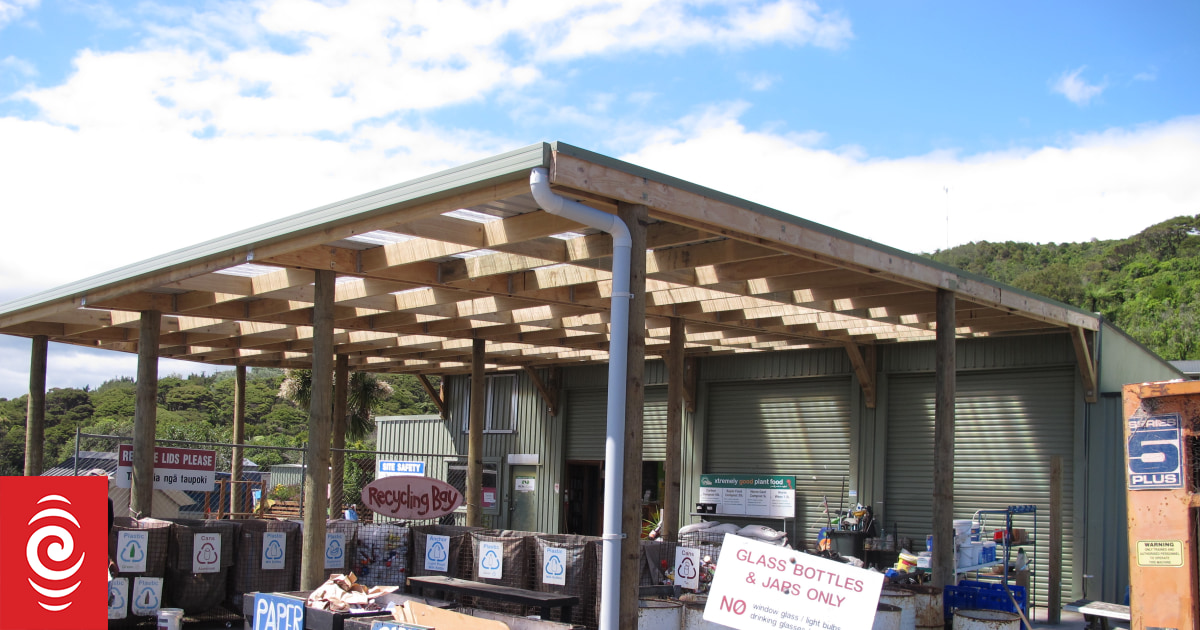Xtreme Zero Waste in Raglan.
Photo: xtremezerowaste.org.nz
Raglan’s Xtreme Zero Waste recycling centre is banning castoffs from China-based, fast-fashion giant Shein.
The poor quality and the sheer volume of Shein garments mean selling them in their recycle retail store is challenging, it said.
Shein clothes tend to be made from synthetic fabrics and testing has shown some contain harmful chemicals like formaldehyde. They are also sold at low prices and in large volumes.
Some Shein staff allegedly work 75-hour weeks and get just one day off a month.
This year, France passed what has been dubbed the ‘Shein & Temu law’, imposing extra taxes and penalties on fast-fashion items.
Jemma Hovelmeier from Xtreme Zero Waste in Raglan told Checkpoint Shein clothing had become a huge problem for the re-use store, making up about one in five donations.
“We get about 22,000 clothes rehomed a year, so those are clothes that are donated and rehomed, but we were finding that the racks were just stacking up and stacking up with Shein… that we just couldn’t find a home for.”
Hovelmeier said the clothes they received from the fast-fashion brand were poor quality and not designed to last.
“They’ll just be really poor designs, things that don’t cover much, or things that just look really frumpy and unflattering.”
She said synthetic fabrics were also a big issue, making it difficult to recycle the clothes that didn’t sell.
“We’d move them into the free zone or we’d be putting them in bags for rags, which is quite easy to do for cotton, but the synthetic plastic material, it’s often really hard to repair or re-use.”
The recycling centre also held concerns about Shein’s labour practices, with the brand receiving many allegations of poor practice.
“When you start looking into the bigger picture of it – Shein – you’re wondering how they can just be creating things at such high volume. We are rehoming about 22,000 clothes throughout a year, whereas Shein can be listing like 2000-10,000 items on their website a day.
Hovelmeier said, as a local enterprise, customers cared about where their clothing came from.
“You feel good, as well, when you donate and when you shop second hand, often because you’re finding a bargain, but also because you know that you’re making a sustainable choice.
“Having the shelves flooded with Shein clothing, people would not be feeling so great about that purchase, because they’re, like, ‘Hey, how’s this been made? Who’s made my clothes? Where does it come from?’
“We found there just was really little demand and value that people were seeing in the clothing, so they just weren’t wanting to buy it second hand.”
Hovelmeier said she hoped the ban of Shein items would raise awareness for customers and donators about the negative impact the fast-fashion brand had.
“We want to be able to have a chat with people, when they’re donating these clothes, like, ‘How did this end up in your life?’, and try to use it as a talking point to gain like more awareness about how big of an issue this is.”
She urged people to prioritise shopping second hand and local over buying online.
Sign up for Ngā Pitopito Kōrero, a daily newsletter curated by our editors and delivered straight to your inbox every weekday.

